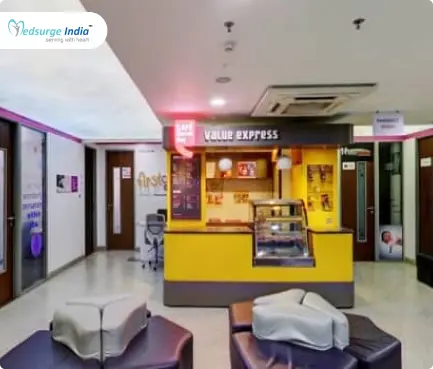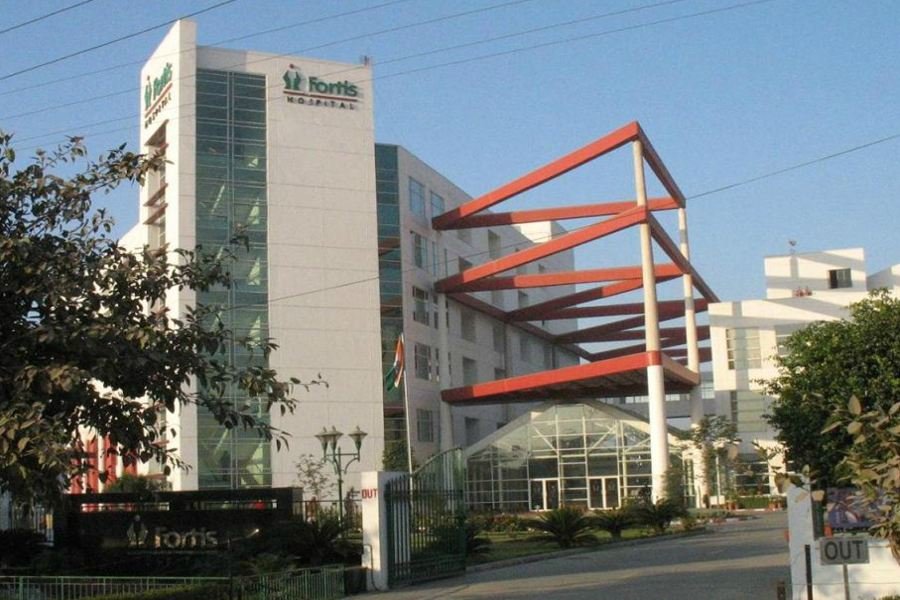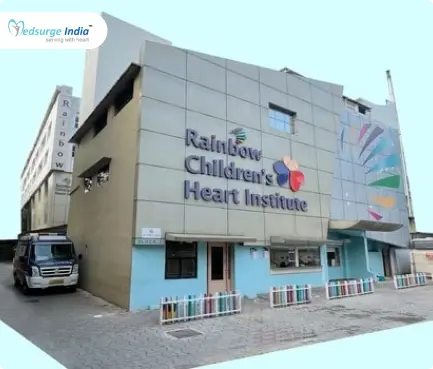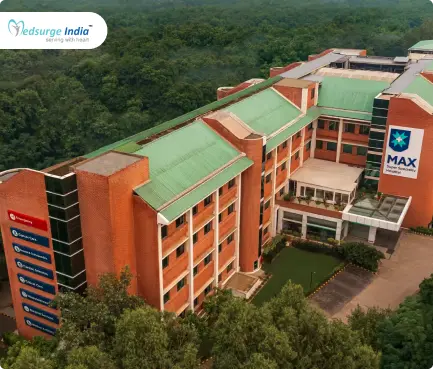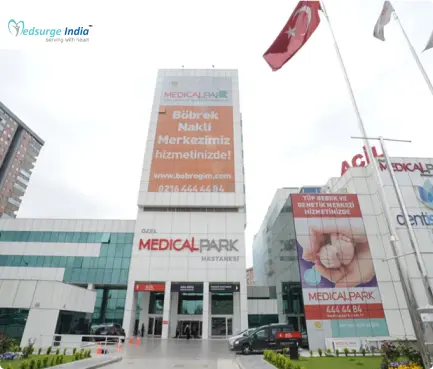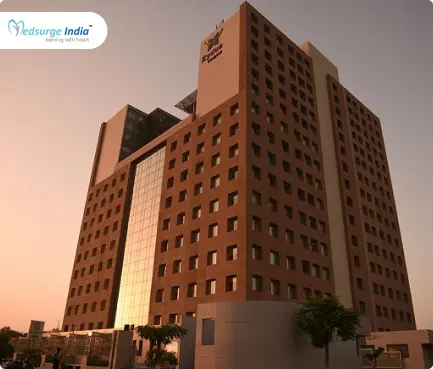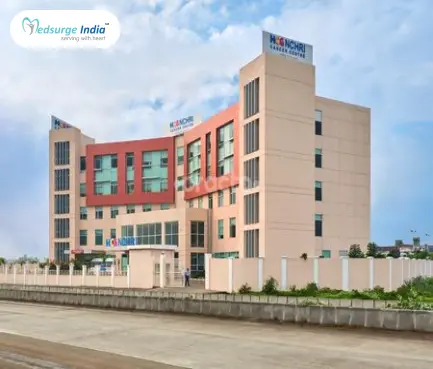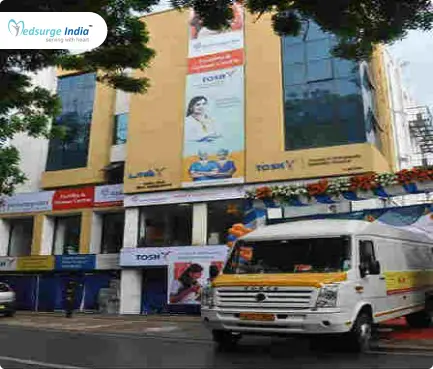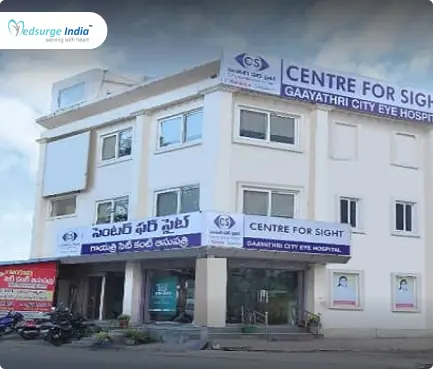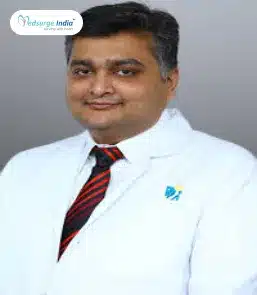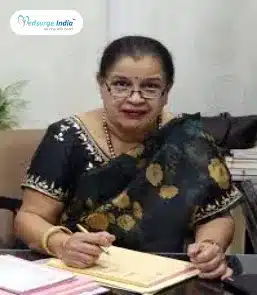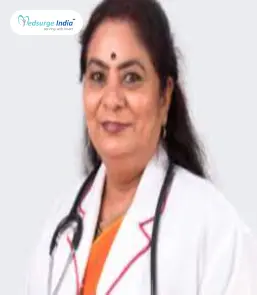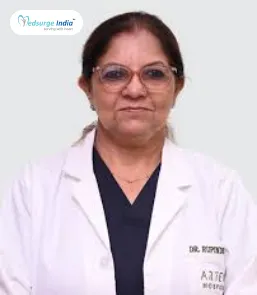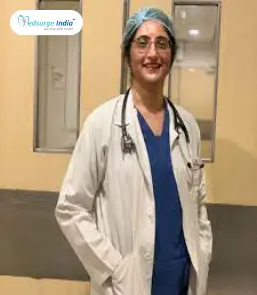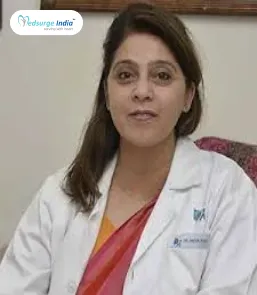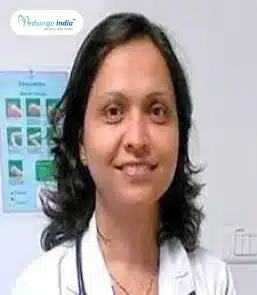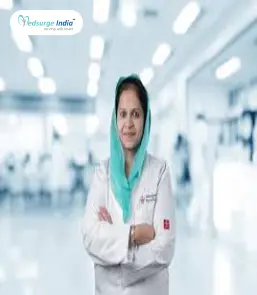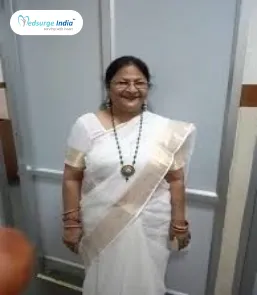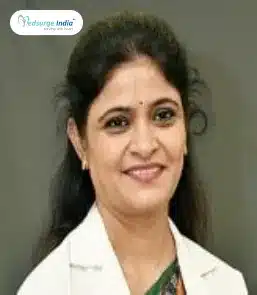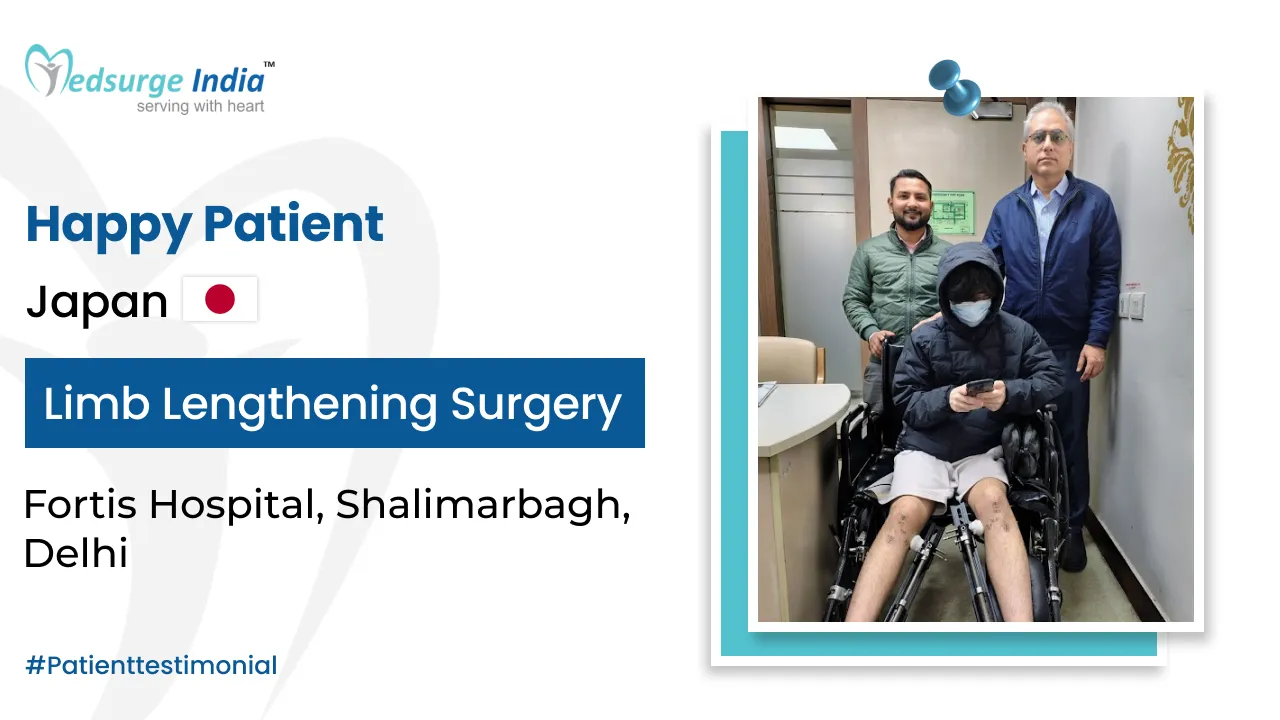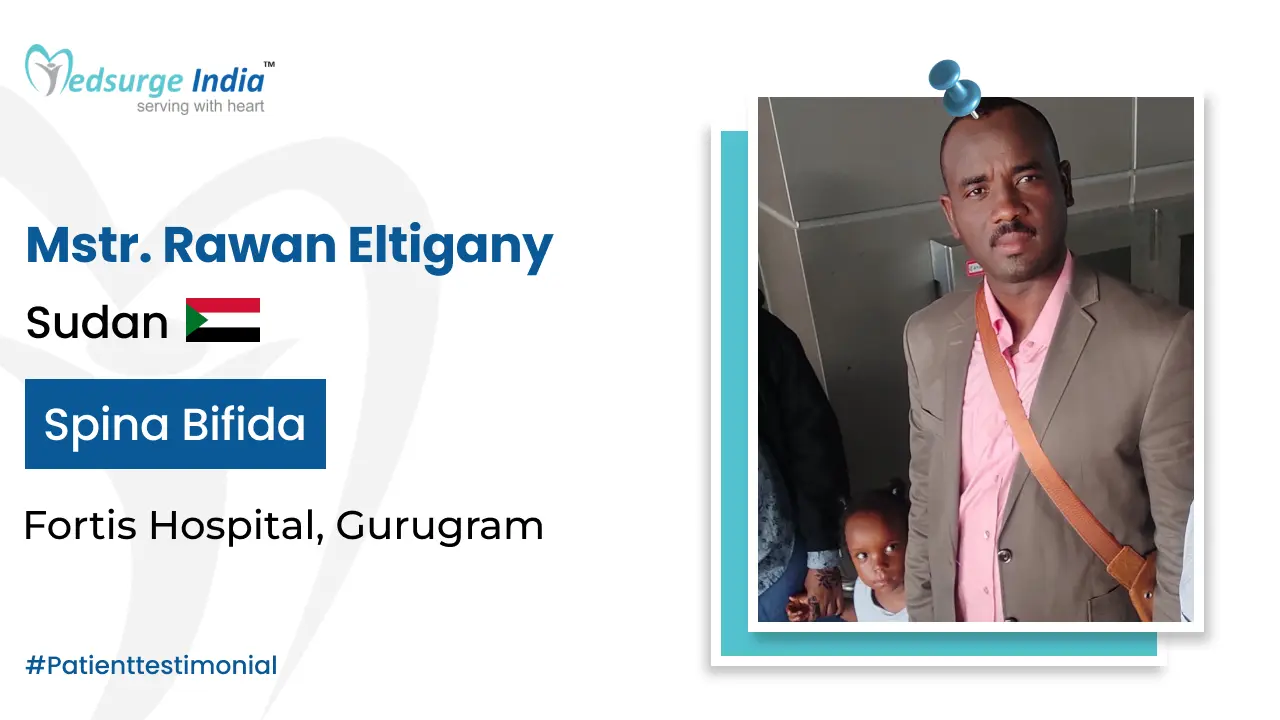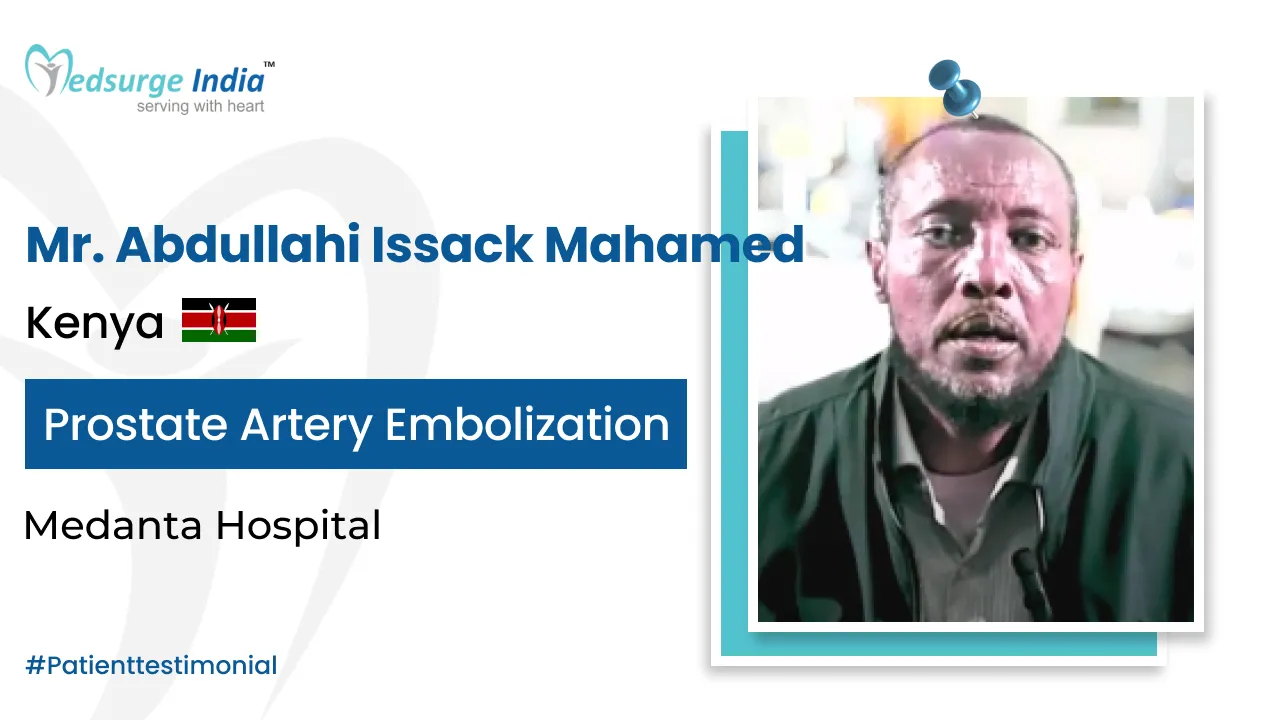
Oophorectomy is a surgical procedure to remove an ovary or both to decrease your chance of cancer or to deal with specific health conditions across the pelvic area. When just 1 ovary is removed, it’s known as Unilateral Oophorectomy whilst elimination of both is known as Bilateral Oophorectomy.
The ovaries are located on both sides of the uterus in the pelvis and are almond-shaped in dimension. The ovaries are the reproductive organs that contain eggs releasing a single egg each month. They also produce hormones–estrogen and testosterone which control the menstrual cycle.
Oophorectomy can be carried out on its own or blended with the elimination of different organs to decrease the threat of breast cancer or ovarian cancer because the fallopian tubes (Salpingectomy) and ovaries share an identical blood supply.
As soon as an ovary and a fallopian tube have been removed, the operation is referred to as Salpingo-Oophorectomy or Unilateral Salpingo-Oophorectomy (USO). When both ovaries and fallopian tubes have been removed, it’s named Bilateral Salpingo-Oophorectomy (BSO)
Additionally, Oophorectomy may be carried out with Hysterectomy (removal of the uterus with no uterus and fallopian tubes).
Oophorectomy Cost in India
The average cost of Oophorectomy surgery in India is between INR 3,50,000 to INR 6,00,000. It typically includes necessary preoperative tests, the patient’s condition of its eyes, and the type of surgery itself. However, please note that accommodation and transfers are not included in this cost.
Cost of Oophorectomy in Different Cities in India
| Cities | Starting Price |
| Delhi | INR 3,50,000 |
| Gurgaon | INR 3,50,000 |
| Noida | INR 3,50,000 |
| Mumbai | INR 3,70,000 |
| Hyderabad | INR 3,50,000 |
| Chennai | INR 3,50,000 |
| Kolkata | INR 3,50,000 |
| Bangalore | INR 3,80,000 |
Note: Keep in mind that the above-mentioned cost provided is solely for the treatment. The overall cost of Oophorectomy in India will be determined based on several factors.
Factors That Can Affect Oophorectomy Cost in India
Various factors can affect the cost of Oophorectomy in India. Your budget is greatly impacted by numerous elements that fail under pre and post-treatment costs. Below are the various factors that can affect the cost of Oophorectomy in India.
- Medication costs: Certain medicines can influence the overall cost of the treatment.
- Patient Condition: The complexity of the disease along with the patient’s overall health can affect the duration of treatment, impacting the cost.
- Duration of treatment: Longer treatment courses involving multiple visits can lead to higher cumulative costs.
- Geographical location: Cost can vary widely depending on the region in India.
- Hospitalization expenses: The length of hospital stay and the level of nursing care required by the patient can add to the treatment expenses.
- Government policies and subsidies: Government healthcare schemes and subsidies can reduce out-of-pocket expenses for patients, affecting the affordability of the treatment.
- Medical tourism packages: Curated packages for international patients can include various services at a bundled cost, influencing the overall expense of treatment in India.
- Hospital reputation and infrastructure: Prestigious hospitals with state-of-the-art facilities may charge more for their services.
- The expertise and experience of medical professionals: Gynecologist with extensive experience and recognition often command higher fees, contributing to the treatment cost.
- The type and frequency of diagnostic procedures: Regular monitoring with advanced imaging and laboratory tests can increase treatment costs due to the high price of these diagnostic methods.
- The choice of treatment modality: Opting for newer or more advanced treatment options or precision medicine can be more expensive than traditional approaches.
Indications for Oophorectomy
- Chronic pelvic pain
- Pelvic inflammation
- Ectopic pregnancy
- Large ovarian cysts
- Benign tumors
- Ovarian cancer
- Endometriosis
- Ovarian torsion (twisting of an ovary)
- A turbo-ovarian abscess (abscess in a pocket involving the fallopian tube and an ovary)
- To reduce the risk of breast cancer or ovarian cancer in those at high-risk women
Diagnosis and Tests
- Complete physical examination of the pelvic region
- Blood and urine tests
- CT Scan
- Ultrasound
Different Surgical Approaches to Oophorectomy
There are three forms of surgical procedures. You might choose to talk about it with your physician to understand the very best alternative for you.
- Open Cosmetic Dentistry: an incision is made on the stomach to remove the uterus. This may take time to recover and has a greater chance of complications.
- Laparoscopic Surgery: a laparoscope containing a camera and light is inserted via a small cut from the gut to better visualize the pelvic tissues. With little surgical instruments, the semen will be removed. This strategy requires a while to recuperate, lower the chance of disease and is significantly less painful. But it takes more time to perform and includes a danger of injuring the close from organs or urinary tract.
- Cosmetic Surgery: This strategy enables the surgeon to use a robotic arm to perform the process through small incisions. It takes more than the conventional strategy.
Get Free Cost Estimation
Procedure
Before Surgery:
- Your physician will do a physical exam.
- Diagnostic tests must be performed as indicated by your health care provider.
- Inform your physician about your health history including current medications and allergies.
- Your physician will discuss the best choice for your operation.
- Furthermore, in the event that you still would like to be fertile, be sure to talk with your physician and explore possible choices even if the two ovaries will need to be eliminated.
- You’ll be asked to stop taking certain medicines like blood thinners, herbal supplements if you’re taking them.
- You’ll be asked to quit smoking should you as it impacts the recovery procedure.
- You’ll be asked to stop eating and drinking 8 — 12 hours before the operation.
- Drugs given ought to be taken with small sips of water.
During Surgery:
- You’ll be given general or local anesthesia based on the type of surgery chosen for, however you won’t feel any pain.
- You might be provided a temporary catheter and IV inserted into your vein.
- The operation can take approximately 1 to 4 hours depending upon the grounds of operation.
- The surgeon creates an incision in the abdomen that could be either horizontal or vertical. Vertical incisions provide a much better view of their organs while flat gives a less noticeable scar.
- The physician will separate the abdominal cells from the ovaries and also blood vessels attached to avoid bleeding.
- The ovary is eliminated along with a different organ based on the cause of operation.
- When laparoscopy is completed, the surgeon uses a camera, light, and surgical instruments within the human body and performs the operation by means of a monitor.
- If the robotic operation is completed, the surgeon uses a robotic arm providing him a nicer motion of the surgical instruments and watches via a 3-D monitor.
- The incisions are stitched and closed.
After Surgery:
- On exactly the exact same day of the operation, you’ll be requested to be up and around, even require a brief walk.
- You might spend a night or 2 at the hospital if it’s an abdominal operation, however with the laparoscopic operation, only an overnight stay is needed.
- You will experience some pain and if it’s too acute, some pain medicine will be offered.
- If both ovaries are removed, you may experience premature menopause and certainly will be put on hormone replacement medicine.
- You might have damn to mild vaginal discharge.
- No bathtub bathing or sexual intercourse is allowed permitted by your health care provider.
- Eat well and get loads of rest.
- Being active or walking can help prevent blood clots and pneumonia.
- It might take 6 weeks to completely recover following an open abdominal operation whereas it could take two weeks to return to ordinary activities after laparoscopic or autonomous surgery.
- Follow your physician’s instructions while recovering.
- Inform you, doctor, immediately in case you notice any abnormal symptoms such as fever, worsening abdominal pain even though pain medication, difficulty urinating, swelling, or swelling around the incision area.
Risks and Complications
Serious complications are rare, but complications can arise if you have diabetes, are overweight, or smoke. As with any surgery, there are some risks involved and some possible complications are:
- Bleeding
- Infection
- Blood clots
- Damage to nearby organs
- Allergic reaction to anesthesia
- Ovarian tissue retention
- Bowel obstruction
Factors Affecting the Oophorectomy Cost in India
The cost of oophorectomy treatment may vary upon certain factors, they are:
- The medical condition of the patient
- Type of surgery
- Location of the hospital
- Choice of hospital
- Cost of diagnostic tests
- Surgeon’s fee
- Medical treatment
- Duration of hospital stay
The Most Important Frequently Asked Questions
Q: What Is the Benefit of Oophorectomy?
A: Oophorectomy is a method to reduce the chance of breast or ovarian cancer or to bargain with specific medical complications from the pelvic area like chronic pelvic pain, pelvic inflammation, benign cysts or tumors, abscess from the uterus and fallopian tube, or ovarian torsion to list a couple.
Q: How Will I Know Which Surgery Is Best for Me?
A: This will be dependent on the sort of complications you confront. Your health care provider will talk to you about the very best choice to maintain your organs and also help you to stay healthy.
Q: Will I Still Be Able to Reproduce If One Ovary Is Removed?
A: Natural conception remains possible with a Single ovary as Well as a Single Leg, Ordinary functions still stay the same.
Q: What Option Do I Have If Both My Ovaries Need to Be Removed but I Still Wish to Have Children?
A: If you still need to have kids, your doctor will send you to a fertility specialist to go over possible choices before the two ovaries are removed.
Q: When Will I Fully Recover?
A: In the event that you needed an open abdominal operation, it might take you 6 weeks to completely recuperate. However, with laparoscopy and robotic operation, it might take 3 months. Be certain you don’t exert too much stress on your body whilst regaining and follow your physician’s instructions carefully.
Q: When Can I Start Work?
A: Be ready to take off work at least for a week. Consult with your doctor when you can resume work.
Q: When Will it Be Possible to Drive Again?
A: With consent from your physician, you’ll have the ability to induce 2 to 6 months following the operation. It will be based on your wellbeing and if you’re off any narcotic pain medicine.
Q: Do I Need to Carry a Yellow Fever Vaccination Certificate When I Travel to India?
A: Yes, if you’re traveling from Africa, South America, or other areas where yellow fever is located. Click Here to confirm the list of states. Both adults and children will need to take the certification.
Q: Can I Get a Visa on Arrival If I Travel to India for My Treatment?
A: Yes, If You’re from Japan, Cambodia, Finland, Indonesia, Philippines, Luxembourg, Myanmar, New Zealand, Singapore, South Korea, and Vietnam. Travelers from Bhutan, Nepal, and Maldives can enter India without a visa i.e. around 90 days.
Q: What Are the Eligibility Requirements for a Medical Visa to India?
A: In case you’ve got a valid passport and visa and are looking for medical care in a reputed and recognized hospital in India, then it is possible to make an application for a medical visa to India. In accordance with 2 attendants that are blood, relatives may accompany the individual under different attendant visas.
Top Hospitals for Oophorectomy in India
Top Doctors for Gynecology
Dr. Nitesh Jain
Consultant
Experience: 12 years of experience
Apollo Hospitals, Greams Road, Chennai
Chennai, India
Dr. Shruti Parikh
Consultant
Experience: 11 years of experience
Cloud Nine Hospital Navi Mumbai
Mumbai, India
Dr. Ambuja Govindaraj
Consultant , MBBS, MS, DGO
Experience: 16 years of experience Bangalore , India
Columbia Asia Hospital, Bangalore
Bangalore India
Dr. Mangala Patil
Consultant
Experience: 36 years of experience
Wockhardt Super Speciality Hospital, Mira Road
Mumbai, India
Dr. Onam Khattar
Consultant
Experience: 11 years of experience
Max Super Speciality Hospital, Patparganj, New Delhi
New Delhi, India
Dr. Anita Kaul
Senior Consultant
Experience: 28 years of experience
Apollo Cradle & Children’s Hospital, Moti Nagar
New Delhi, India
Dr. Priyanka Reddy P
Consultant
Experience: 9 years of experience
Apollo Spectra Hospital, Bangalore
Bangalore, India
Dr. Hema Malini N
Consultant
Experience: 15 years of experience
Manipal Hospital (Old Airport Road) Bangalore
Bangalore, India
Dr. Dipankar Bhattacharyya
Senior Consultant
Experience: 26+ years of experience
NH Rabindranath Tagore International Institute of Cardiac Sciences, Kolkata
Kolkata, India
Dr. Sangeeta Raodeo
Consultant
Experience: 14 years of experience
Fortis Hospital, Mulund, Mumbai
Mumbai, India
Dr. Tasneem Nishah Shah
Consultant
Experience: 22 years of experience
Manipal hospitals Life’s On, Whitefield
Bangalore, India
Dr. Nisha Naruka
Associate Professor
Experience: 30 years of experience
Mahatma Gandhi Medical College & Hospital, Jaipur
Jaipur, India
Dr. Shafalika S B
Consultant
Experience: 20
Manipal Hospital Formerly Columbia Asia Referral Hospital, Bangalore (Yeshwanthpur)

